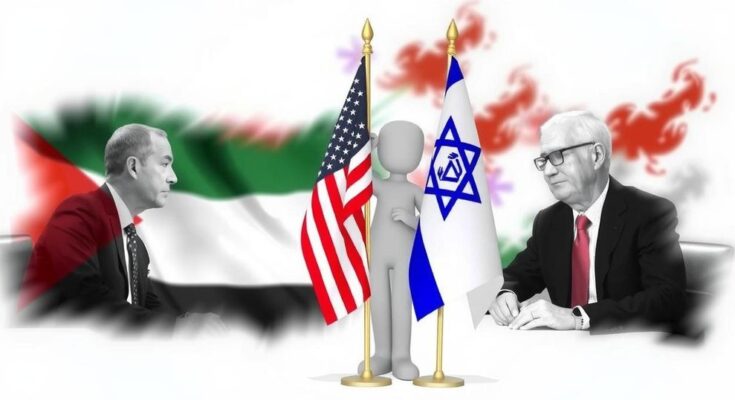The UAE is negotiating with Israel and the U.S. to oversee post-war Gaza governance until a reformed Palestinian Authority can take control. The discussions include the need for substantial PA reforms and potentially utilizing private military contractors for peacekeeping, as the parties seek to establish a stable governance framework. The reconstruction of Gaza is expected to require significant international support amidst ongoing concerns about regional stability and governance effectiveness.
The United Arab Emirates (UAE) is in discussions with Israel and the United States regarding the establishment of a provisional government for post-war Gaza until a reformed Palestinian Authority (PA) can take over. These behind-the-scenes negotiations suggest a temporary oversight role for the UAE and its allies in governing Gaza, ensuring security, and leading reconstruction efforts after Israeli military withdrawal. Although details remain vague, the UAE emphasizes the necessity for substantial reforms within the PA to facilitate a sustainable governance model.
The UAE’s unique position as a diplomatic partner to Israel and a close ally of the U.S. places it in a strategic role to influence the negotiations, especially amid Israeli Prime Minister Benjamin Netanyahu’s hesitations to define a clear vision for Gaza. The recent discussions highlight the complexities involved in reshaping governance in Gaza, given the historical challenges faced by the PA since its inception under the Oslo Accords.
Additionally, discussions around the potential use of private military contractors as part of a peacekeeping force raise concerns over human rights violations associated with such entities. Despite the pressing need to reconstruct Gaza, with estimated costs running into tens of billions, cooperation from various international stakeholders is paramount. Some Emirati officials have articulated that any military presence in Gaza must come at the invitation of the PA and align with U.S. involvement for legitimacy.
Furthermore, the protracted nature of the conflict and the varied interests of stakeholders underscore the difficulty in arriving at a coherent plan for Gaza’s future governance. The UAE has specifically called for significant reforms within the Palestinian Authority, including a change in leadership, to ensure efficient governance and accountability, which has been a significant point of contention in Middle Eastern politics.
The ongoing conflict in Gaza has raised numerous challenges concerning governance and regional stability. Following a lengthy military operation by Israel, there is a critical need for reconstruction and a stable political framework to govern Gaza effectively. The Palestinian Authority, established during the Oslo Accords, has faced criticism for its governance failures and corruption, especially since its ousting from Gaza by Hamas in 2007. This backdrop highlights the urgency of establishing a new governance approach that can address the historical complexities and international concerns surrounding Gaza’s future.
The discussions between the UAE, Israel, and the United States represent a pivotal moment in shaping Gaza’s post-war governance. The emphasis on reforming the Palestinian Authority and the potential temporary oversight by international partners indicate a strategic shift towards a collaborative framework aimed at ensuring stability in the region. The success of these efforts hinges on addressing the underlying challenges related to governance and representation, while also considering the views of various stakeholders, particularly the Palestinian populace.
Original Source: www.jpost.com




